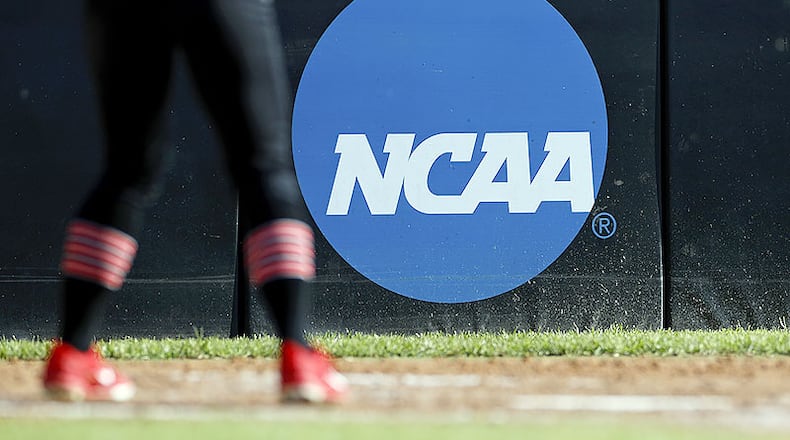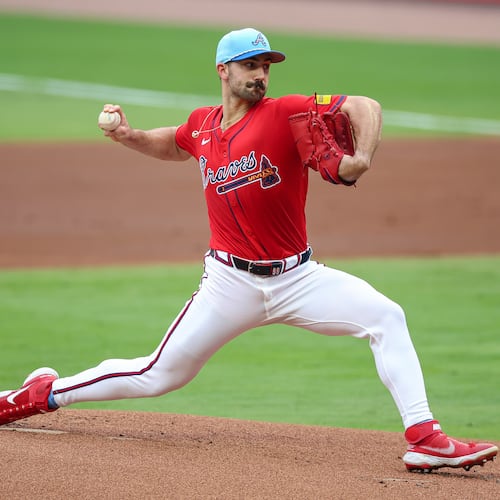Add the Braves to the list of businesses suddenly seeking to line up college athletes to pitch their products.
New state laws and NCAA policies this month cleared a long-blocked path for college athletes to be compensated for use of their name, image and likeness (NIL), and the Braves are among the first pro sports franchises to express interest in playing in that space.
“It still feels a little bit like the wild, wild West, but we love the opportunity to be able to partner with college athletes within our market and to support them financially and also to bring them in (to games) in a way we couldn’t do previously,” said Greg Mize, the Braves’ senior director of marketing and innovation. “There’s such strong overlap between fandom of all these schools and the Braves, so it’s a good place for us to play.”
As with most companies making deals with college athletes, the Braves are looking at a modest expenditure. Mize said the Braves are thinking initially in terms of selecting two athletes, one male and one female, to promote the team on social media. Compensation, he said, would include a small stipend (perhaps $500) and a commission on tickets sold through a link the athletes can place on their social-media accounts, plus VIP-type treatment at Braves games and team merchandise.
“These men and women are influencers,” Mize said. “They’ve got thousands of people who follow them, and we want to tap into that influence.”
The Braves’ interest is an extension of the team’s popular “college nights” promotions at games.
The NHL’s Florida Panthers have announced similar interest in making NIL deals with college athletes. Mize said he isn’t aware of any other MLB team going down this path yet.
The Braves put word out on Instagram about their desire to work with college athletes in promoting the team, stating three criteria for candidates: being a Braves fan, attending a school in “Braves Country” and being active on social media. The Braves have received close to 500 direct messages from interested athletes, Mize said. The team is vetting the respondents and expects to soon select the first two athletes to approach.
“We’re less concerned about what sport you play and more interested in your social media following and engagement,” Mize said.
The Braves are considering focusing their attention initially on working with one athlete from Georgia and one from Georgia Tech before expanding the program to athletes at other schools. The team envisions the athletes’ promotional role being pretty much limited to social-media posts.
“It’s similar to what we’ve done with non-collegiate-athlete influencers over the past years,” Mize said. “It’s also something that is very natural for (college students). We don’t want this to be a significant time commitment for a fall athlete whose practices are going to be starting.”
After long enforcing rules that barred college athletes from receiving compensation beyond the value of their scholarships, the NCAA entered a new era July 1 in which athletes can make money from third parties for endorsement deals, social-media posts, personal appearances, autograph signings and the like – all without compromising their collegiate eligibility. New state laws in Georgia and elsewhere prodded the NCAA to change its policy on the issue nationally.
About the Author
Keep Reading
The Latest
Featured



